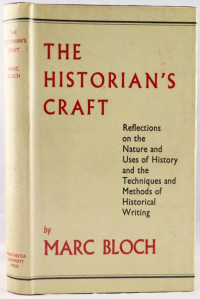Brodie Waddell
Ulinka Rublack, in her introduction to a recent symposium at the Institute for Historical research, argued that it was time for us to revisit ‘microhistory’. Partly, she said, this was because microhistory had been explicitly challenged by Jo Guldi and David Armitage in their History Manifesto for being too focused on narrow and specialist histories at the expense of the ‘big picture’. However, Rublack also suggested that microhistory has been misconstrued by the tendency among even sympathetic scholars only engage with the ‘classics’ of the genre – especially Carlo Ginzberg’s The Cheese and the Worms and Natalie Zemon Davis’s The Return of Martin Guerre – rather consider the wealth of new microhistories that have been written in recent decades.

As someone long fascinated by microhistory, it was wonderful to be able to come along to this event. I’ve written about defining it, branding it and defending it before on this blog, and I’ll be running an MA module on microhistory at Birkbeck in the coming year, so I was keen to hear more about the current scholarship, and I was not disappointed. It was a excellent event and it touched on facets of this concept that I had hardly considered before. It would be far too ambitious to attempt to summarise each of the six speakers much less the discussion that followed, but I thought it might be productive to draw attention to two angles that particularly caught my attention.
Microhistory as a meeting place

 Last week I asked historians on twitter what three books they would recommend for prospective students to read over the summer – those students starting a history degree in September. I got a lot of responses (thanks very much, brilliant #twitterstorians), and you can read the full list at the end of this post. Before you do, here are a few thoughts that struck me about summer reading for history students.
Last week I asked historians on twitter what three books they would recommend for prospective students to read over the summer – those students starting a history degree in September. I got a lot of responses (thanks very much, brilliant #twitterstorians), and you can read the full list at the end of this post. Before you do, here are a few thoughts that struck me about summer reading for history students. 1) Students need to get to know the discipline, since what they did at school is not representative of it. So they should read ‘what is history’ books which explain why and how academics study the past. These might mainly cover historiography, or might be focused on issues that are fundamental to the discipline, i.e. what footnotes are, or why there is fiction in the archives. (See list section ‘The Historian’s Craft’).
1) Students need to get to know the discipline, since what they did at school is not representative of it. So they should read ‘what is history’ books which explain why and how academics study the past. These might mainly cover historiography, or might be focused on issues that are fundamental to the discipline, i.e. what footnotes are, or why there is fiction in the archives. (See list section ‘The Historian’s Craft’).